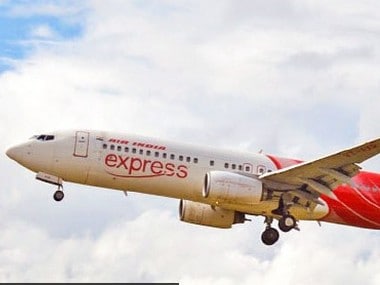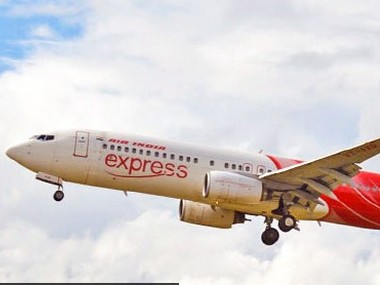The proposed Air India deal offered by the government is sweeter than expected, said a senior executive of a private airline. He said that given the number of aircraft owned by Air India and its low-cost subsidiary Air India Express, a buyer can recover a major portion of the investment by adopting the sale and leaseback of airplanes, according to an IANS report. Global aviation consultancy firm CAPA on Monday termed the government’s decision to sell 100 percent stake in Air India a “bold reform” and said it expects “significant” response from the prospective bidders. “The Centre for Asia Pacific Aviation (CAPA) expects significant response (to Air India’s stake sale) as the offer structured by the government is attractive,” CAPA India chief Kapil Kaul told PTI. He said the time given for due diligence and submitting bids is also reasonable. “Clean exit by the government and entire non-aircraft-related debts taken out of AI (Air India) balance sheet, particularly as entire debt excluding aircraft is taken out and this signals a determined effort to exit Air India to allow taxpayers funds to be utilised for social agenda of the government,” he said. The government said on Monday it plans to sell its entire stake in Air India, in a revised push to sell its national carrier after an initial attempt to sell a majority stake in the airline failed to draw a single bid in 2018. As part of the strategic disinvestment, Air India would also sell 100 percent stake in low-cost airline Air India Express and 50 percent shareholding in joint venture AISATS, as per bid document issued on Monday. AISATS is an equal joint venture between Air India and Singapore Airlines. It offers ground handling services. Management control of the airline would also be transferred to the successful bidder. The document set 17 March as the deadline for submissions of initial expressions of interest and said any bidder would have to agree to assume roughly $3.26 billion in debt, along with other liabilities, according to a Reuters report. Under the popular sale and leaseback arrangement, an airline acquires the aircraft at an attractive price and sells the aircraft to a lessor at a profit. It then leases it back for its own use. As per the bid document, Air India has an aircraft fleet of 121 aircraft (excluding 4 B747-400 aircraft) as on November 2019, mainly comprising Airbus and Boeing aircraft, out of which 65 are owned or on finance lease. [caption id=“attachment_5525681” align=“alignleft” width=“380”]  Air India Express. Image courtesy: Air India website[/caption] Air India’’s low-cost subsidiary Air India Express has a total of 25 Boeing 737-800 NG aircraft of which 10 are owned and 7 on finance lease. The remaining 8 are on dry lease. “The government has addressed most of the issues taking feedback from prospective investors during roadshows. The debt issue has been addressed to the extent that it may raise eyebrows,” a top government source said. Following the release of the bid document, Civil Aviation Minister Hardeep Singh Puri on Monday said that debt on the books of Air India at the time of transaction would be frozen at Rs 23,286.5 crore which is equivalent to the written-down value of the combined assets of Air India and Air India Express. While many industry experts described the bid terms as a bold move by the government, concerns remain over substantial interest from private parties to bid for the state-owned airline which has many legacy issues. “As far as the interest level of private parties is concerned only time will tell. There are many factors which will decide this. If external factors turn adverse then participation may not be as expected,” said an industry insider. Hindujas, Tatas may buy national airline? Multiple sources said that Tatas and Hindujas could evince interest in buying the carrier. IndiGo remains a strong contender but sources pointed out that the airline has reasonably expanded its network internationally and hence may not acquire an entity that is completely different in terms of aircraft type and functioning. The Hinduja Group and Interups , the US-based fund, have decided to join the race to acquire Air India, even as the central government prepares the bid document for the loss-making airline’s sale, according to a Business Standard report. Acquisition of Air India would help the Tatas scale its aviation business. The group has two joint ventures—one a full-service airline with Singapore Airlines (SIA) to operate Vistara, and a second with budget carrier AirAsia. Combined, they made a loss of over Rs 1,500 crore in fiscal 2019, a report in The Economic Times said. Foreign airlines such as Etihad and Qatar Airways could tie-up with local players to place their joint bid to buy out the public sector carrier. The Narendra Modi government’s move to sell Air India and its subsidiaries had failed in 2018 as not a single private party evinced interest. While it had earlier offered 76 percent stake in the airline along with management control, the government has offered to sell its entire stake in the airline this time. As the government proposed to hold 24 percent stake in the company and corresponding rights, many prospective buyers had apprehensions about interference and hence stayed away from the bid process. A high amount of debt and adverse macro-environment such as high fuel prices were cited as major reasons for the no-show. “This time the government is willing to go the extra mile to ensure whatever the buyer wants they will probably agree to it,” said Rajan Mehra, CEO of Club One Air and former India head of Qatar Airways suggesting that there would be enormous interest from private companies to buy Air India. Air India has about 9,400 permanent employees and 3,600 fixed-term contract staff - including 1,850 pilots and 4,600 cabin crew - with benefits such as discounted air tickets and pensions. Its employees protested against the 2018 sale attempt, and it was not immediately clear if they would also resist the latest effort. The government said it would provide details on safeguarding employee interests in its final bid document. Air India has a debt burden of Rs 55,000 crore. In November last year, a ministerial panel headed by Finance Minister Arun Jaitley had approved transferring Rs 29,000 crore debt to a special purpose vehicle (SPV)– Air India Asset Holding Company. “We are eyeing $1 billion from the sale of Air India,” the official had then told PTI. According to the document, debt of Rs 23,286.5 crore would remain with Air India and Air India Express at the time of closing of the disinvestment The remaining debt would be allocated to Air India Assets Holding Ltd (AIAHL). EY is the transaction adviser for Air India disinvestment process. --With inputs from agencies
Given the number of aircraft owned by Air India and its low-cost subsidiary Air India Express, a buyer can recover a major portion of the investment by adopting sale and lease back of airplanes
Advertisement
End of Article


)
)
)
)
)
)
)
)
)



